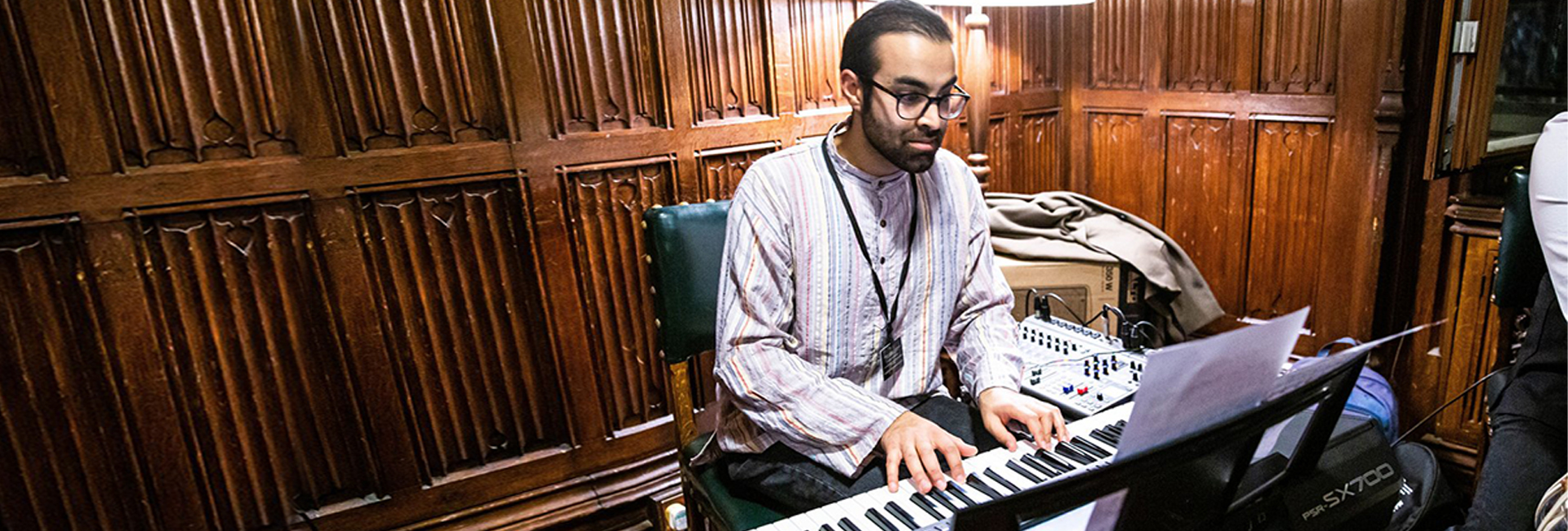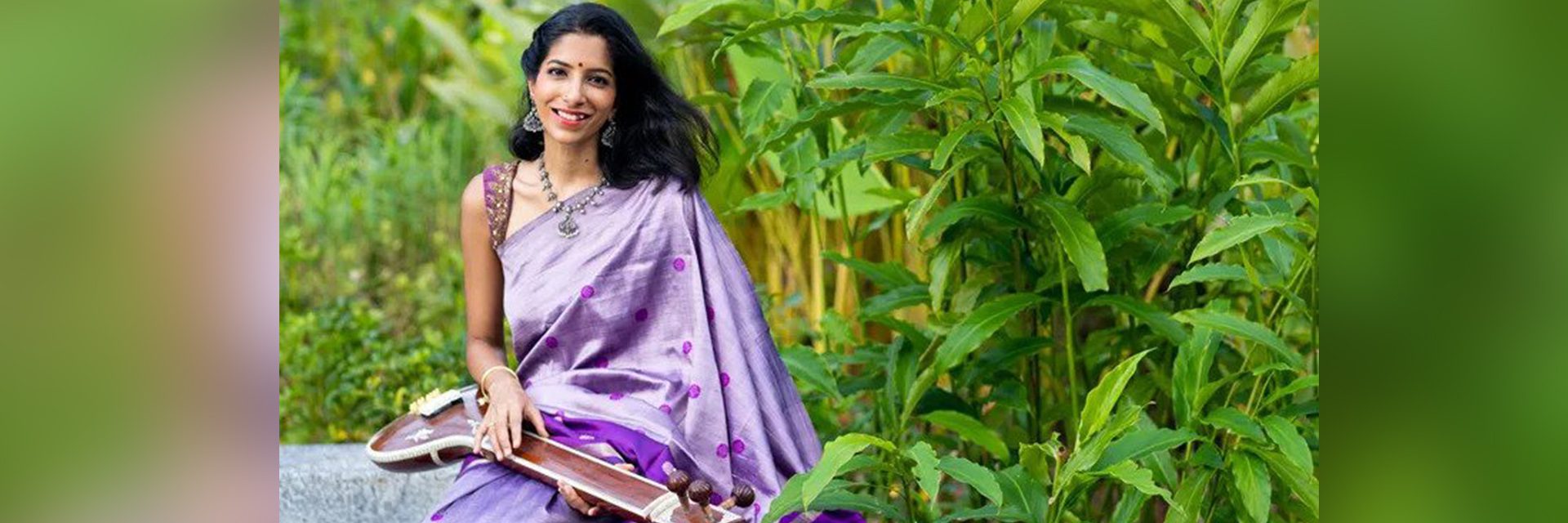(February 4, 2023) “Music,” they say, “speaks the language of the soul.” And it seems like UK-based musician Kavi Pau lives by this mantra. The founder and director of a well-known musical venture, Third Culture Collective, Kavi has been bringing together musicians from South Asian and Western cultures on the same platform and giving a whole new meaning to the term ‘fusion music’. Working on collaborative and cross-cultural music, the venture has been producing some soul-stirring music that is both divine and trendy.
“The journey of Third Culture Collective started for a very personal reason that I wanted to bring the best of Indian and South Asian music together. We have an incredible team and want to produce the best music possible, and are not doing this for fame. Third Culture Collective is a way of infusing the soulfulness of South Asia with the grace of Western classical for the next generation of British Asians, inspiring them to take pride in their mixed musical heritage,” shares the musician as he connects with Global Indian.

Musician Kavi Pau
Currently touring India with his team, the musician, who started this venture during the lockdown, has already produced some fusion melodies on their YouTube channel and received a great response. “We blend music from one culture onto the instruments of another. That might be playing Beethoven on sitar, The Beatles on a bansuri, or an Indian raga arranged for a jazz trio. We have also reimagined some Indian bhajans, including Darshan Do Ghanshyam and Shanta Karam, for a fusion jazz ensemble featuring vocals, plucked bass, piano, and tabla,” the musician shares.
Best of both the world
Born in the UK, Kavi comes from a family with a history of migration. “So my heritage is from Gujarat, and my family was part of the diaspora that migrated from there to East Africa. My ancestors moved to Kenya for trade sometime in the 1940s. Both my parents were born in Kenya and sometime in the 1960s moved to London. They met during their University years in England.”
While many second and third-generation Indian-origin people living abroad cannot identify with their roots, Kavi loved being a part of the vibrant Gujarati community in England. “Even though I was born in the UK, and my parents were born in Kenya, I was very much brought up in a very traditional Gujarati family. We are vegetarians as most Gujaratis in India are. My mornings started with the melodious bhajans and we would often go to the temple as well. I used to have semi-classical Gujarati bhajan lessons, where I would be singing and playing the harmonium.” Alongside his study of Indian music, Kavi developed an active interest in western classical music from a young age, taking lessons in the piano, clarinet, and voice.
And so, like most Indian kids, Kavi too had to choose between a conventional career path and his passion for music. “I grew up in this mixed culture, where on one hand at home I would be speaking Gujarati, singing bhajans, and learning Indian music. However, at school I was exposed to the Western culture, mingling with the host community, and learning Western classical piano lessons,” shares the musician.
“My school encouraged me to pursue music at University as I showed promise in the field, but coming from the traditional Indian background my parents wanted me to pick up medicine. However, I can now see how lucky I am to have had that kind of childhood, where I could learn so much about the cultures of the East and West. There were two separate parts of me as I was learning at two culturally different places. I was never comfortable talking about Indian classical music at school, and I spoke about my Western musical lessons to my extended family members.”
Although his parents wanted him to pursue a more conventional academic course at University, Kavi’s musical brilliance made them change their minds. “Given my family history, there is this narrative that generations of people have given up on so much and sacrificed their dreams for me to be where I am. And now I wanted to choose a less-travelled-by road. However, I think once they realised the potential that I had, and they spoke to my school and teachers, they were extremely supportive.” the musician says.
A musical journey
Eventually, Kavi shares, he led more toward Western classical music. “It was probably because of the training I received,” shares the musician, adding, “My mantra is that whenever you are combining two musical art forms, you are always going to be an expert more in one than the other. You can’t be an expert in everything. For me, I was in a space in the UK where Western classical music lessons were more accessible than Indian classical lessons. So, I see myself as a Western classical musician first.”
View this post on Instagram
It was during his last two years of schooling that Kavi got a chance to be at a specialist music school, which helped him improve his craft further. “I was scouted by the head of the composition at The Purcell School of Music, and that was when I first realised that a music career was possible,” says the musician, who later won a choral scholarship to Gonville and Caius College, Cambridge, where he studied music.
While at Cambridge, Kavi worked regularly as a music director and répétiteur with the University’s top vocal and instrumental ensembles and toured internationally with the Choir of Gonville and Caius College. “At Cambridge, I met other musicians like me. Being able to spend the whole day at the University learning and making music was such a joy. I loved my University years, I didn’t miss a single class, attended all the extra-curricular activities, and made so many life-long friends there. In fact, I had even toured India with the college choir during those years,” he smiles.
Bringing legacies together
After graduating in 2018, with a prize-winning double-first class degree, the musician had a very busy life. However, his childhood memories of learning Indian classical music would often prod him to look into infusing what he has studied with songs of his tradition. “After I left the University, having learned so much about Western classical music, is when I realised that this was not all that I was. I loved my roots and the Indian classical music equally, and wanted to create a space and art that could reflect who I am personally,” he shares.
And thus Third Culture Collective was born. “I started experimenting with it just before the lockdown hit us. I would put some of the compositions together and post them on my social media. And then I realised that maybe there are other musicians like me, who loved Western classical music but were of other musical heritage. So, I thought why not bring these talents together and share the commonality of being different. Interestingly, our process of reimagining a melody with different musical instruments is sometimes longer than composing a new song sometimes,” the musician says. Giving an insight into their process, he adds, “We were experimenting with a piece by Johann Sebastian Bach, and trying to replace the oboe with a bansuri. It was quite a difficult process as there are certain limitations to the instruments. But this process got us discussing how one instrument could replace the other in melodies.”
Sharing his experience of touring India, Kavi says that it has been a ‘magical journey’. “I have visited India before, but my travels were limited to Gujarat and Maharashtra. This is the first time I am visiting various parts of Southern India, and I can honestly say that it’s incredible. Launching the Third Culture Collecting across various institutions in India, I am so impressed by the approach to learning that the young people have here. Everyone is so interested in what we do and wants to be a part of it. I have had the opportunity to learn so much about Indian classical music and how we can shape the Third Culture Collective in the future,” the musician says as he signs off.
- Follow Kavi Pau on Instagram
- Follow Third Culture Collective on Twitter, YouTube, Facebook, and Instagram


